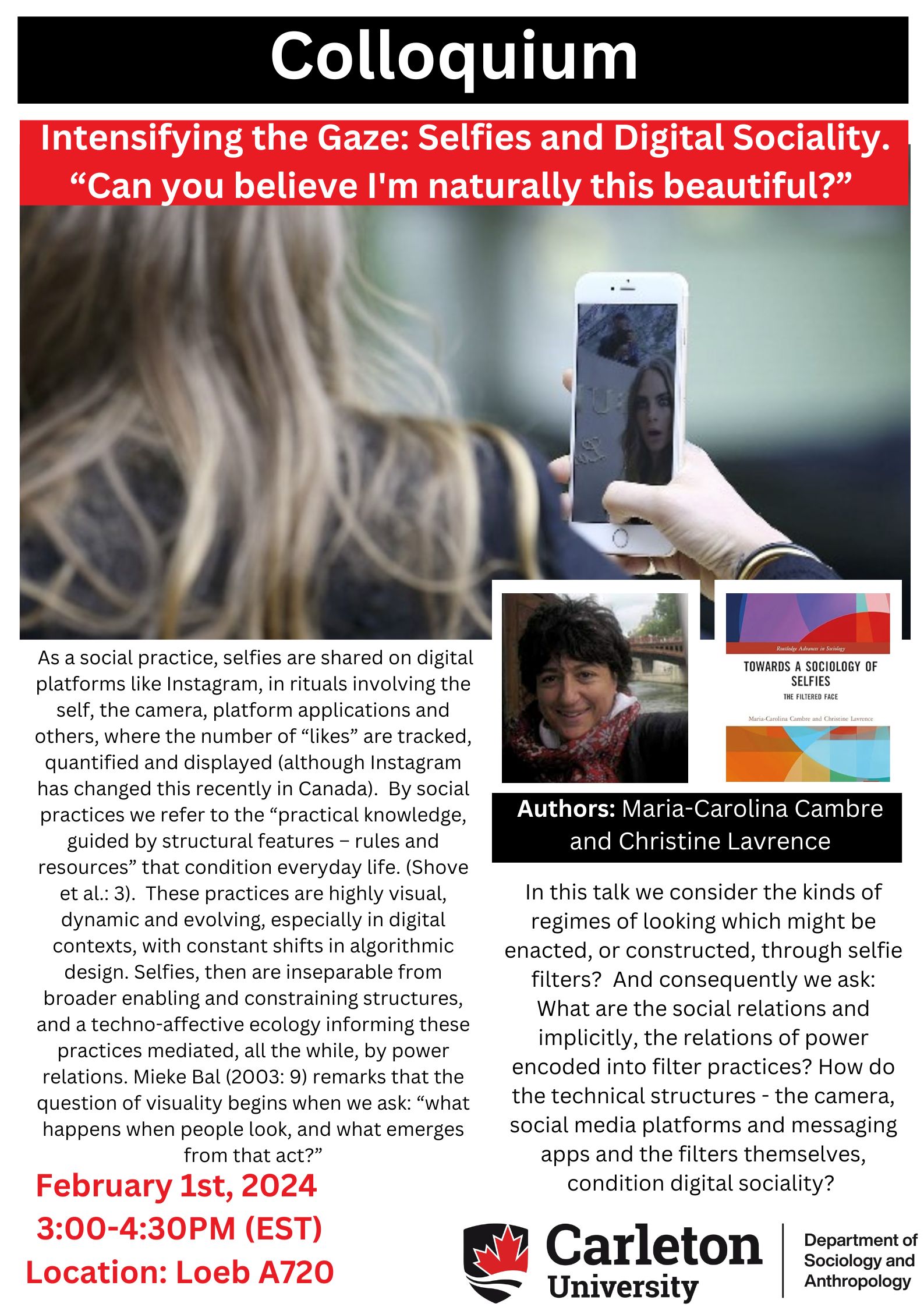Notice:
This event occurs in the past.
Colloquium – Intensifying the Gaze: Selfies and Digital Sociality. “Can you believe I’m naturally this beautiful?”
Thursday, February 1, 2024 from 3:00 pm to 4:30 pm

- In-person event
- A720, Loeb Building, Carleton University
- 1125 Colonel By Drive, Ottawa, ON, K1S 5B6
- Contact
- Sociology and Anthropology, Soc-Anthro@cunet.carleton.ca, 613-520-2582
As part of the Department of Sociology and Anthropology Colloquium Series, Maria-Carolina Cambre presents: Intensifying the Gaze: Selfies and Digital Sociality. “Can you believe I’m naturally this beautiful?”
Title: Intensifying the Gaze: Selfies and Digital Sociality. “Can you believe I’m naturally this beautiful?”
Authors: Maria-Carolina Cambre and Christine Lavrence
Abstract: As a social practice, selfies are shared on digital platforms like Instagram, in rituals involving the self, the camera, platform applications and others, where the number of “likes” are tracked, quantified and displayed (although Instagram has changed this recently in Canada). By social practices we refer to the “practical knowledge, guided by structural features – rules and resources” that condition everyday life. (Shove et al.: 3). These practices are highly visual, dynamic and evolving, especially in digital contexts, with constant shifts in algorithmic design. Selfies, then are inseparable from broader enabling and constraining structures, and a techno-affective ecology informing these practices mediated, all the while, by power relations. Mieke Bal (2003: 9) remarks that the question of visuality begins when we ask: “what happens when people look, and what emerges from that act?”
In this talk we consider the kinds of regimes of looking which might be enacted, or constructed, through selfie filters? And consequently we ask: What are the social relations and implicitly, the relations of power encoded into filter practices? How do the technical structures – the camera, social media platforms and messaging apps and the filters themselves, condition digital sociality?